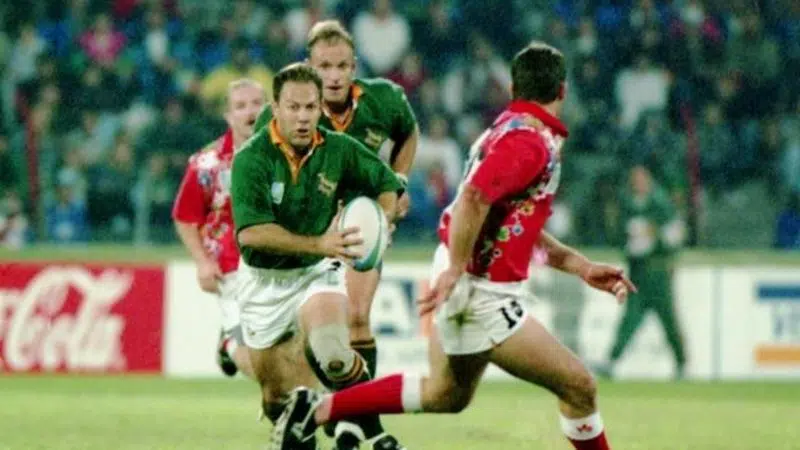
Canada and South Africa have a fight-filled history at the Rugby World Cup
Former Canada captain Gareth Rees can’t escape the memory of getting sent off at the 1995 Rugby World Cup.
People often bring up the volcanic 20-0 loss to host South Africa in the so-called Battle of Boet Erasmus, named after the stadium in Port Elizabeth where the fight-filled game took place.
Plus, Irish referee David McHugh, who also ejected Canadian prop Rod Snow and Springboks hooker James Dalton, gave Rees the red card he brandished after the game’s infamous second-half brawl. The card, framed in a picture of Rees and Snow with a note from McHugh, is on display in Rees’ home.
“It’s funny, for all the rugby I played, it’s the one (game) most people know me for or remember,” said Rees, currently serving as media manager for the Canadian team at the Rugby World Cup in Japan.

